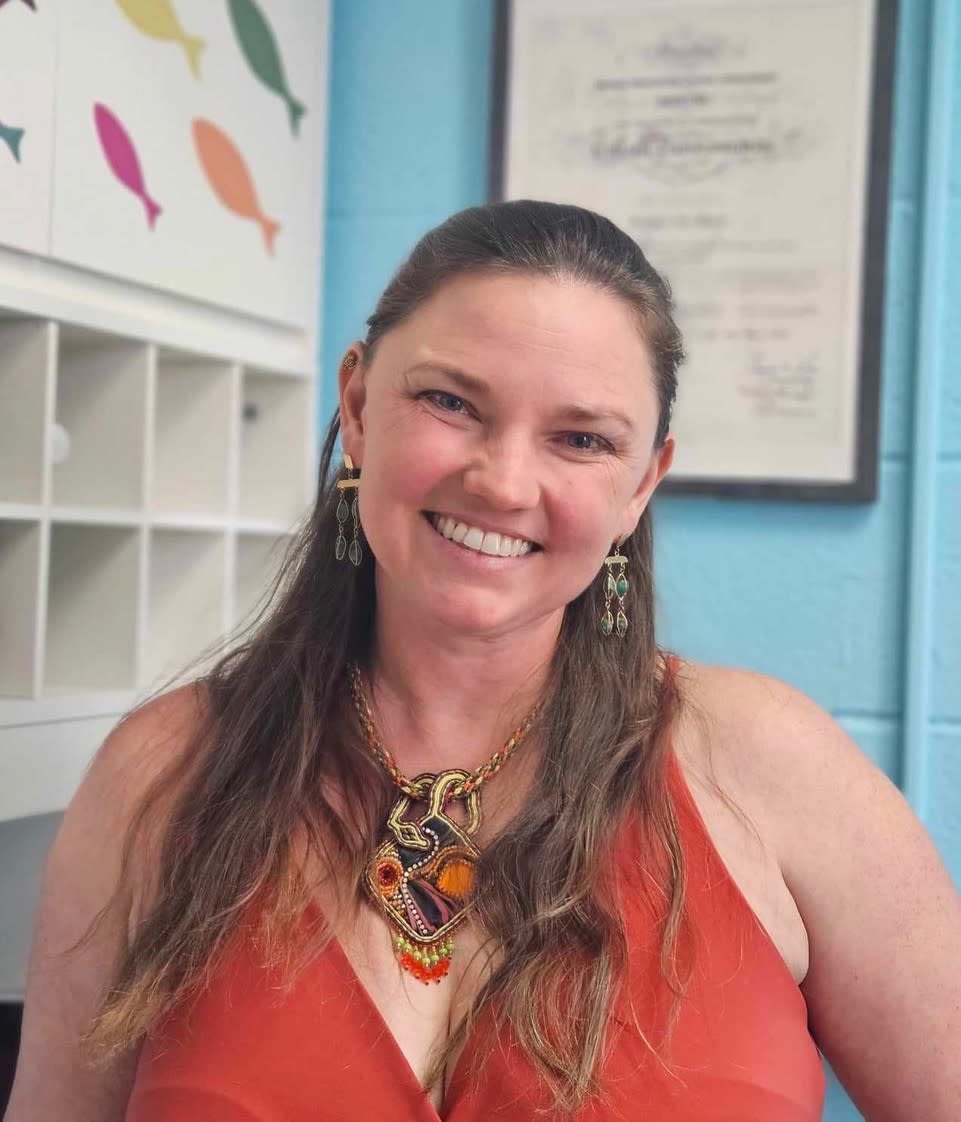Lessons Learned - October 2025
Natasha O'Brown, Rutgers University

I was supposed to be on the faculty job market in Fall 2020. I had a plan: finish the last experiments for my second first-author paper and put myself and my vision for what I could do out there. Then a global pandemic hit and three months of total lockdown with a 2 year old blew that plan to pieces. I came back to lab on a one-week-on, one-week-off schedule and decided that if I couldn’t be productive in lab, I’d be reproductive and be done — and my second child arrived in early 2021.
By the time I actually applied in Fall 2021, I’d been in my postdoc for six years. I’d spent that time establishing a new system for the blood–brain barrier (BBB) — zebrafish, my first research love from my undergraduate days at Davidson College — as a co-mentored project between Chenghua Gu’s vascular biology lab and Sean Megason’s zebrafish developmental biology lab at Harvard. Zebrafish made the BBB visible in a way mice couldn’t— and gave me space to build something that was mine from the start.
My first run on the market resulted in five interviews and zero offers. I was disappointed, depressed, and in denial that I’d come up empty. Sean tried to reassure me with “It only takes one” and encouraged me to apply again the next cycle, but all I could think was, “Sure — easy to say from where you’re sitting.” I had told myself I wouldn’t be one of those people who went on the job market more than once. Surely I’d get one — maybe even a few — offers. And if I didn’t, I could just pivot to industry, make more money, and maybe even have a better work-life balance. But I wouldn’t be able to take my project — my system, which was finally at the point where cool things were happening: developing new assays to test BBB function and uncovering new genes and cells involved in BBB regulation. When someone suggested I hand it over to another person in the lab, I said there was no way in more colorful language. Clearly, I wasn’t ready to give up on my dream of running an academic lab. So I tried again in 2022. Another five interviews, and this time, one offer — in a department that valued both cell biology and neuroscience and felt like a place where my research program and I could thrive. Two years in, I know it was the right fit.
When I started at Rutgers in September 2023, it was just me and one very brave undergrad who joined a month later. We worked side-by-side at the bench while the rest of the lab slowly came together one person at a time. Now we’re three graduate students, a technician, six undergrads, and a postdoc arriving soon. I’m not at the bench every day anymore, which is both liberating and nerve-wracking. Letting go of control is hard. But watching my team take ownership — and sometimes produce results I never would have predicted — is one of the best parts of the job.
What I’ve Learned:
1. Fit matters. Your science and your personality both need to match the environment. I’m the only “fish person” in my department, but it bridges cell biology and neuroscience, and I have colleagues — junior and senior — I trust and consider good friends. Sometimes they have the answers; sometimes they’re just good drinking buddies after a rough week. Both matter.
2. You are your best advocate. No one else is going to chart the course for you. Trust your instincts, do what works for you, and know that there’s no single “right” way to run a lab.
3. Build your community. Inside and outside your institution, find the people you can count on — for advice, troubleshooting, or simply reminding you why you love science in the first place.
4. Ask for help. Pretending you have all the answers just wastes time. If you don’t know the answer, or could use a second (or fourth) opinion, just ask — the best ideas often start that way.
5. Transparency is key. I tell my team what I expect and ask what they need from me. I try to set expectations early, check in often, and adjust along the way. There’s no one-size-fits-all mentoring strategy, and knowing their priorities helps me support them better.
6. Make time for family and friends. No one will set that balance for you. When I’m home, I’m with my family — unless a big grant deadline is looming. I try to lead by example so my team sees it’s possible to care about both the science and your life outside it.
7. Start small, grow deliberately. Expanding changes how you think about science and leadership. It’s tempting to take on everything at once, but intentional growth keeps you from burning out — or burning through your resources.
8. Let go (a little). The work won’t always be done the way you’d do it, and that’s okay. Trust is the only way to scale what’s possible.
Starting a lab is equal parts exhilarating and humbling. It’s chasing the science you love, building a space for others to grow, and figuring out how to do it in a way that works for you. There’s no perfect formula — just the version you create, one decision (and sometimes one hard lesson) at a time.